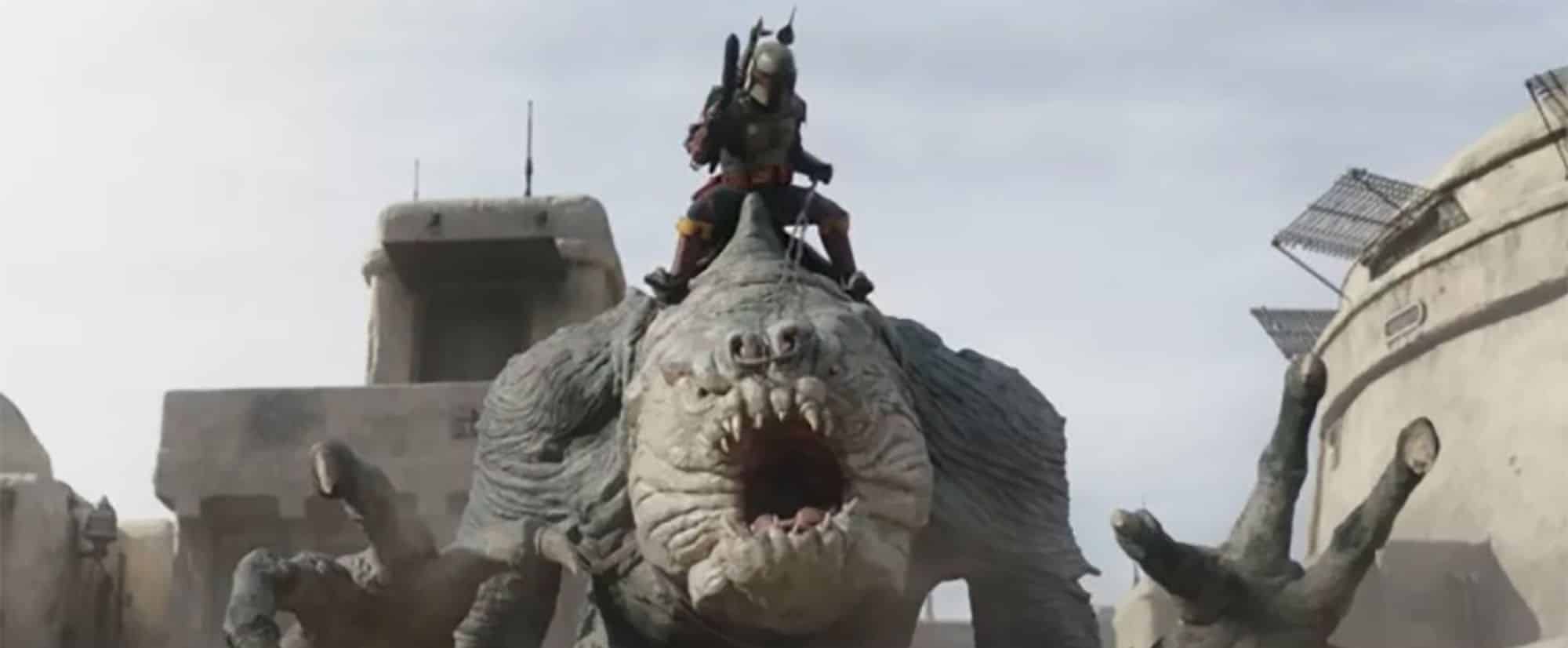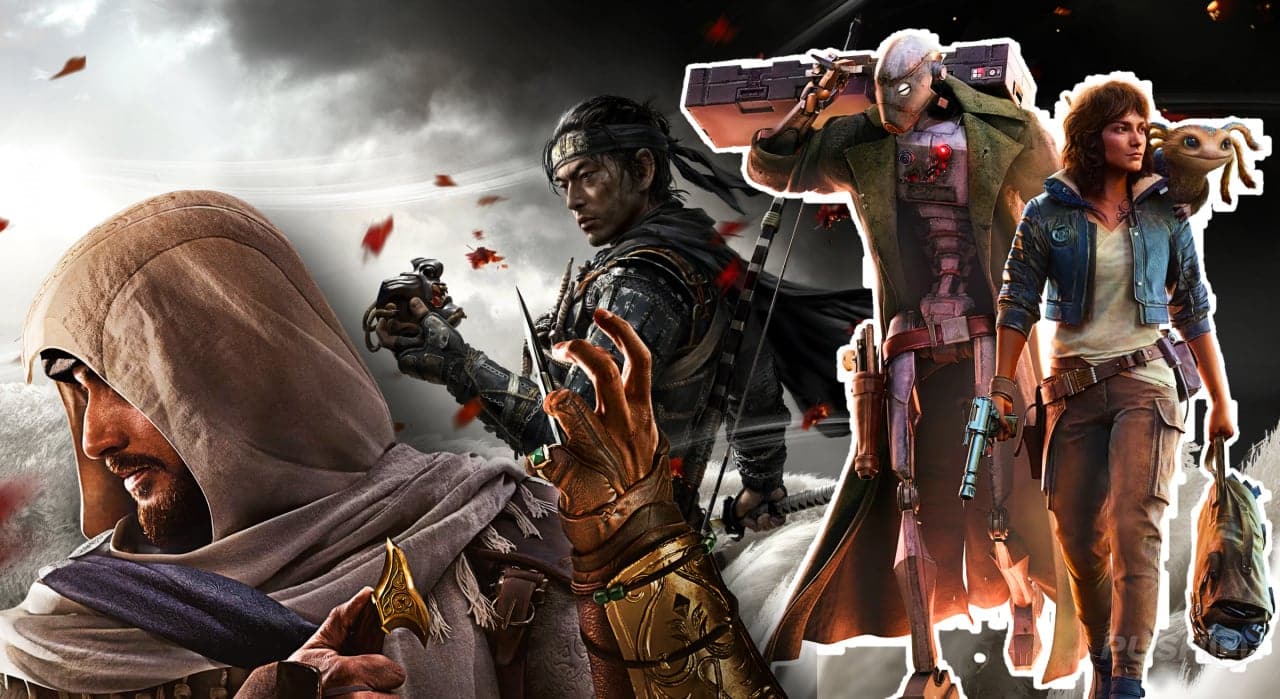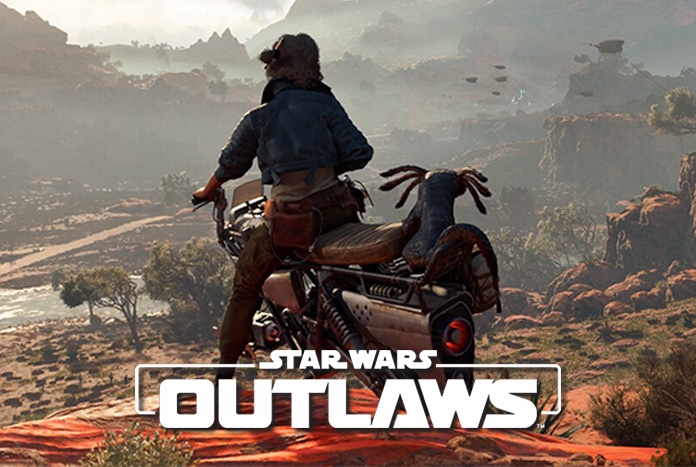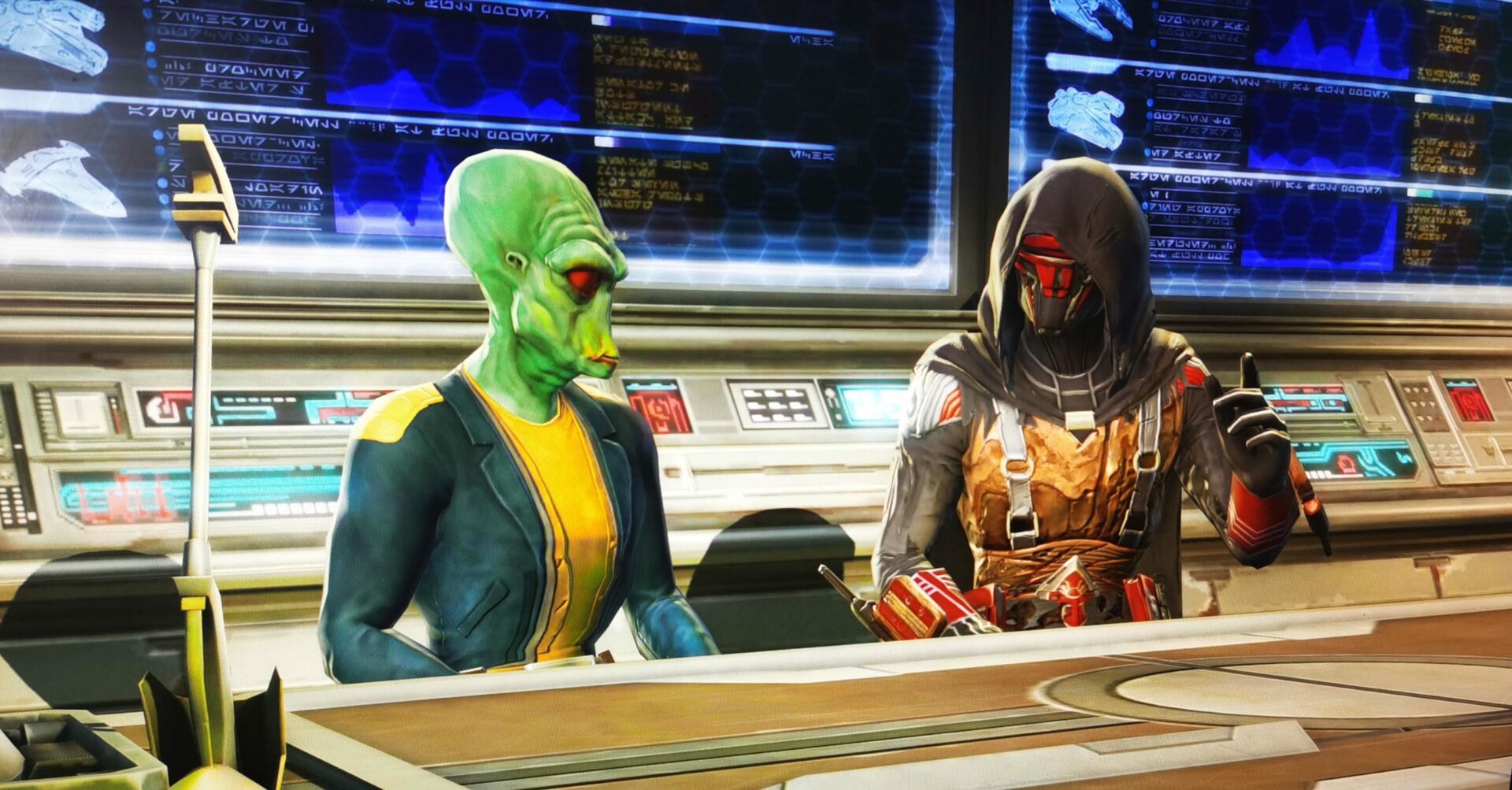Ubisoft Massive’s upcoming game, “Star Wars: Outlaws,” is set to bring a fresh take on the galaxy far, far away with its intricate reputation system. If you’re curious about how this system will impact your gameplay, you’re in the right place. Let’s dive into how the reputation system works and what it means for your adventures as Kay Vess.
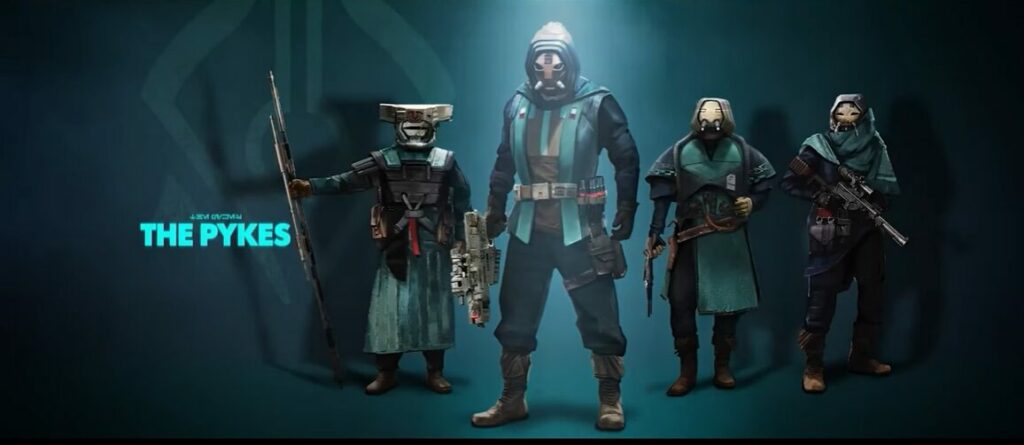
What is the Reputation System?
The reputation system in “Star Wars: Outlaws” tracks your standing with various crime syndicates throughout the galaxy. As a bounty hunter navigating the underworld, your reputation with these groups will influence your interactions and opportunities. Here’s a quick rundown of the main syndicates you’ll be dealing with:
- Hutt Cartel: Infamous for their smuggling operations, the Hutts are a major force in the Outer Rim.
- Crimson Dawn: Known for their shadowy dealings, this syndicate is notorious for its secrecy and power struggles.
- Pyke Syndicate: Masters of spice production, the Pykes maintain control through shady deals and ruthless tactics.
- Ashiga Clan: A new addition inspired by Japanese culture, operating primarily on Kijimi with a hierarchical structure.
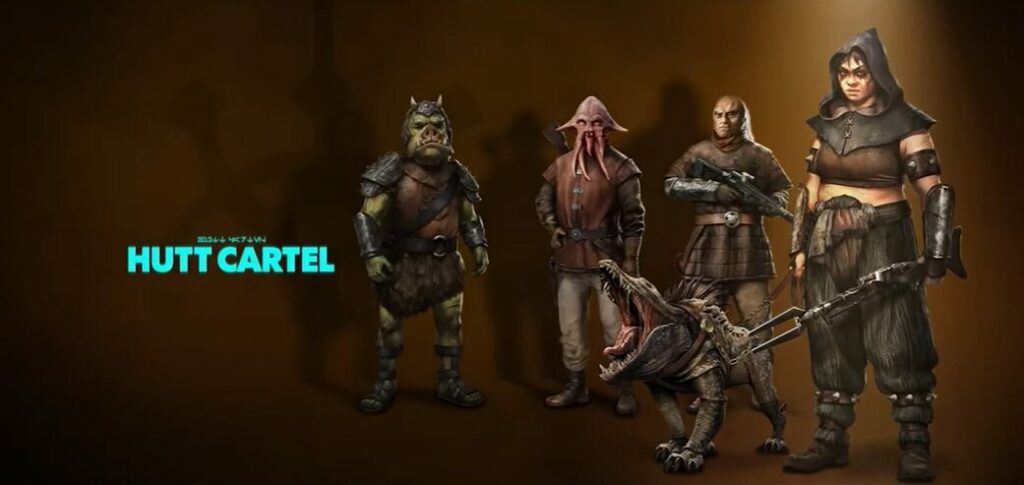
How Does It Work?
Your reputation with each syndicate starts off poor but changes based on your actions. Here’s how you can influence your standing:
- Main Story Missions: Decisions made during key missions will significantly impact your reputation. For instance, choosing to help one syndicate over another will gain you favor with one but lose standing with the other.
- Side Quests and Job Boards: Smaller missions and tasks can also affect your reputation. Successfully completing these missions can improve your standing without necessarily harming another syndicate’s view of you.
- Open World Encounters: Random events and interactions in the open world offer opportunities to improve or damage your reputation.
These changes are not always zero-sum; you can often gain favor with one syndicate without losing standing with another, making strategic decision-making crucial.
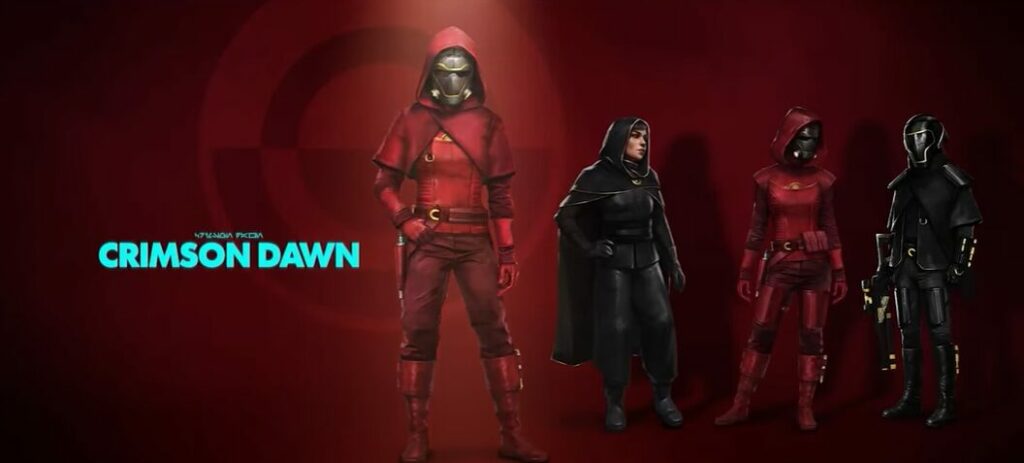
Impact on Gameplay
Your reputation significantly impacts gameplay in several ways, adding layers of strategy and immersion:
- Access and Privileges: High reputation with a syndicate grants access to restricted areas, special vendors, and unique items. For example, good standing with the Crimson Dawn might unlock special weapons or entry to exclusive locations.
- Support in Combat: Friendly syndicates might assist you in combat if you are in their territory. For example, being chased by enemies might prompt a syndicate that likes you to step in and help.
- Hostility and Restrictions: Poor standing results in hostility, where syndicates might attack you on sight and restrict access to their territories and resources.
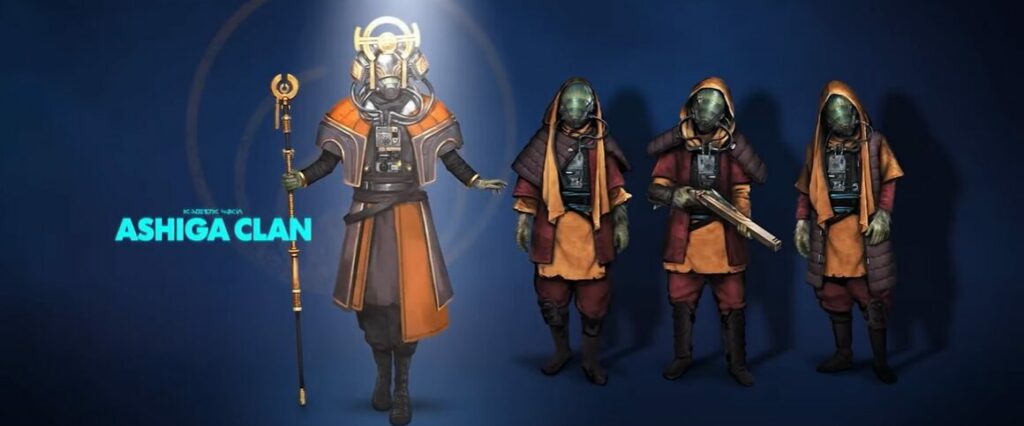
Dynamic World Interaction
The reputation system ensures that the game world reacts dynamically to your actions. According to Mathias Karlson, the game’s director, the system is deeply integrated into the game’s mechanics. High reputation might grant access to special landing pads, while low reputation could make you a target for bounty hunters.
Karlson also mentioned that some of the game’s most exclusive rewards are tied to the reputation system. These include rare items and mission access that are only available to players who maintain high standings with specific syndicates.
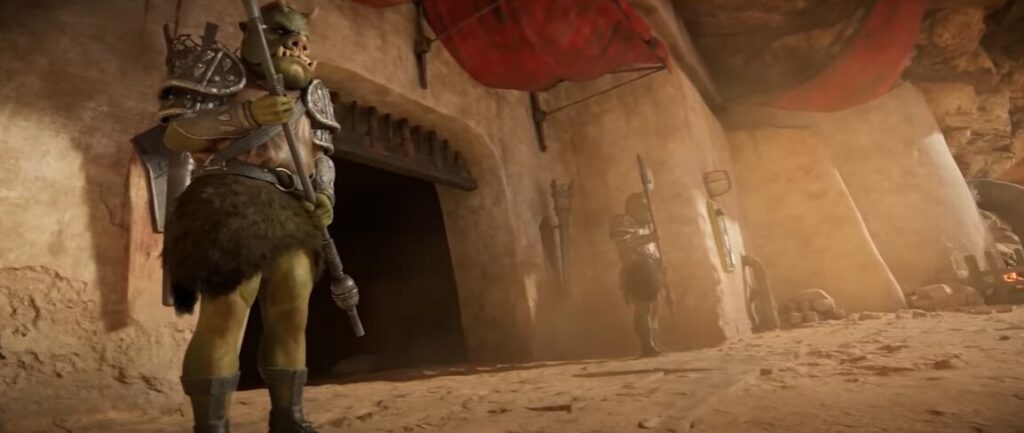
Balancing Act
Balancing your reputation across different syndicates is key. While it’s challenging to maintain good standing with all factions, it’s not impossible. The game is designed to allow strategic players to navigate these relationships carefully. Achieving high reputation with all syndicates will unlock all related cosmetics and unlockables, providing significant replay value for completionists.
Syndicate Overview
Let’s take a closer look at the key syndicates in “Star Wars: Outlaws”:
- Pyke Syndicate: Known from “Star Wars: The Clone Wars” and “The Book of Boba Fett,” they control spice production and maintain deals with the Empire.
- Crimson Dawn: Once led by Darth Maul, they are involved in various conspiracies and operate from the shadows, as seen in “Solo: A Star Wars Story.
- Ashiga Clan: A new syndicate inspired by Japanese culture, their hierarchical structure adds a fresh dynamic to the game.
- Hutt Cartel: Familiar to any Star Wars fan, the Hutts’ power in the Outer Rim through smuggling operations will be prominently featured, with Jabba the Hutt making an appearance.

Conclusion
The reputation system in “Star Wars: Outlaws” promises to add depth and strategy to the game, making every decision count. Your interactions, access to resources, and narrative pathways will all be influenced by your reputation. Whether you aim to be a favored ally or a notorious enemy, your journey through the galaxy will be uniquely shaped by your actions.
Want More Tips?
If you’re enjoying the rebellious life, check out our other guides. If you’re on the fence whether to get the game, go check out our review here.
Check out our ever-growing list of gaming guides for Star Wars: Outlaws:
- Best Early Skills to Unlock in Star Wars Outlaws: A Complete Guide
- How to Access the Black Market in Star Wars Outlaws: Tips for Unlocking Exclusive Items
- Credits Made Easy: A Guide to Getting Rich Quickly in Star Wars Outlaws
- How to Claim Star Wars Outlaws Twitch Drops: A Complete Guide
- Mastering Speeder Upgrades in Star Wars Outlaws
- Where To Buy Transparisteel In Star Wars Outlaws
- Mastering the Experts and Abilities in Star Wars Outlaws: A Comprehensive Guide
- How to unlock Space Travel & Top Trailblazer Upgrades in Star Wars Outlaws
- Star Wars Outlaws Trophy List Revealed: Unlock All 50 Trophies and Achievements
- How to Unlock All DLC and Pre-Order Items in Star Wars Outlaws: A Step-by-Step Guide
- Star Wars Outlaws Easy Slicing Guide
- How to Clear Your Wanted Level in Star Wars Outlaws: 4 Effective Methods
- How to Get the Smoke Bomb Compressor in Star Wars Outlaws
- Star Wars Outlaws Lockpicking Guide: Master the Rhythm and Unlock Secrets




